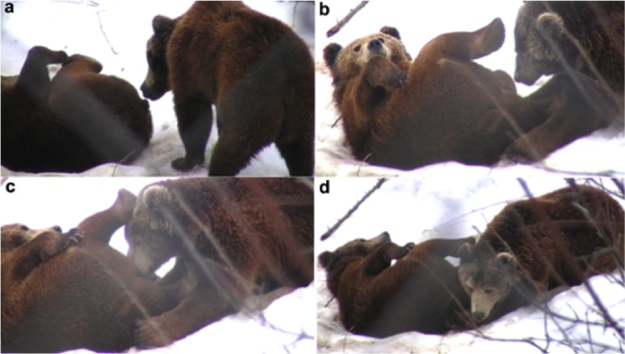The scientific journal Zoo Biology has a research-based scoop it would like to share with you: “the first descriptive report of fellatio in bears.” What makes the findings unique, the study points out, is that mammals of the non-human sort generally only engage in “sexually stimulating behaviors” that result in baby-making.
Here are the nuts and bolts of the research from Discovery News:
Scientists have observed a pair of male brown bears in captivity in Croatia that regularly engaged in oral sex over several years… The two, unrelated male bears in the study were orphaned soon after they were born in 2003 and put in captivity at a sanctuary in Kuterevo, Croatia. Over the course of six years and 116 hours of observation time, scientists led by Agnieszka Sergiel, of the Polish Academy of Sciences’ Department of Wildlife Conservation, witnessed 28 acts of fellatio between the two male bears… The larger bear was always the one to receive fellatio. In many incidents, he appeared to reach orgasm from the sex act (which lasted for just a few minutes), as evidenced by muscular contractions and, well, fluids on the muzzle of the provider. When the deed was done, he often pushed the provider off with his hind legs or turned away.
Here’s more from the study’s authors:
All cases appeared to be initiated by the provider, who approached the receiver while he was resting on his side or with part of his abdomen exposed. If the receiver’s genitals were not exposed, the provider would push his head into the pelvic region or use his paws to separate the hind legs. After accessing and initial licking of the penis, the provider would find a more comfortable posture, such as sitting or lying…once actual sucking started, neither bear changed position.
While you may have just assumed this saucy bear beahavior was the result of when two brown bears love each other very much, the study suggests it was the result of “early deprivation of maternal suckling.”
